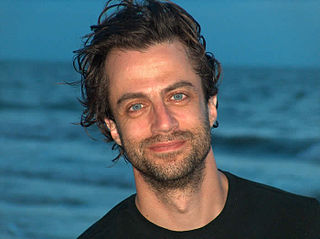A Quote by Sydney J. Harris
But what is significant is that if you don't want to like and accept somebody, one excuse is as good as another. The objective facts don't matter, and the reasons are never as ‘reasonable' as we like to think they are.
Related Quotes
People will like you who never met you, they think you're absolutely wonderful; and then people also will hate you, for reasons that have nothing to do with any real experience with you. People don't want to lose their enemies. We have favorite enemies, people we love to hate and we hate to love. If they do something good, we don't like it. I found myself doing that with Ronald Reagan. He is anathema to me. If he does something that's reasonable, I find my mind trying to find some way to interpret it so that it's not reasonable, so that somewhere it's jingoist extremism.
If you think about it, we love others not for who they are, but for how they make us feel. In order to willingly accept the direction of another individual, it must make you feel good to do so...If you believe what I'm saying, you cannot help but come to the conclusin that those you have followed passionately, gladly, zealously~have made you feel like somebody...This business of making another person feel good in the unspectacular course of his daily comings and goings is, in my view, the very essence of leadership.
Abstract reason, formerly the servant of practical human reasons, has everywhere become its master, and denies poetry any excuse for existence.
Though philosophers like to define poetry as irrational fancy, for us it is practical, humorous, reasonable way of being ourselves. Of never acquiescing in a fraud; of never accepting the secondary-rate in poetry, painting, music, love, friends. Of safeguarding our poetic institutions against the encroachments of mechanized, insensate, inhumane, abstract rationality.
I personally feel like people shouldn't have to come out. That, to me, was like a moment for myself where I was coming out to myself with, like, 'Okay, I can be the artist that I want to be, and as long as the music is good, people will accept me. It doesn't matter who I am, what I look like. If the music is good, they will like me. The end.'
If you're saying something that people don't want to hear or accept, a significant proportion of them will reply with hostility. Not because they know the facts, or because they have researched it themselves, but because they're so psychologically involved in believing good news that they will oppose it with a reflex.
I'm an aesthetic empiricist. If you like something, it doesn't matter who made it. There really is no objective standard other than your own taste. You develop your own tastes, you find things that do or do not fit your tastes, and therefore are or are not 'good.' Whether they have been labeled as produced by the right person is another matter.
I take facts about reasons to be fundamental in two ways. First, I believe that facts about reasons are not reducible to or analyzable in terms of facts of other kind, such as facts about the natural world. Second, I believe that reasons are the fundamental elements of the normative domain, and other normative notions, such as goodness and moral right and wrong can be explained in terms of reasons.
It’s better to think of my life like that— part miracle, part madness. It’s better if I accept that I can’t control any of the things that matter. My life is a trail of shipwrecks and set-sails. There are no arrivals, no destinations; there are only sandbanks and shipwreck; then another boat, another tide.
Of course, you can never watch something like somebody else watches something like you, but nonetheless, you have to try. So I think on camera you learn a lot about how much the camera does for you, which is what is the great luxury of movie acting. Or acting whether it's TV or movies or whatever it is, that the camera's really such a gift because there's so much that it sees and does if you're willing to just be open and expose yourself and all of that. So you also learn what doesn't matter. And sometimes when you think about things, you think things matter that don't matter.

































